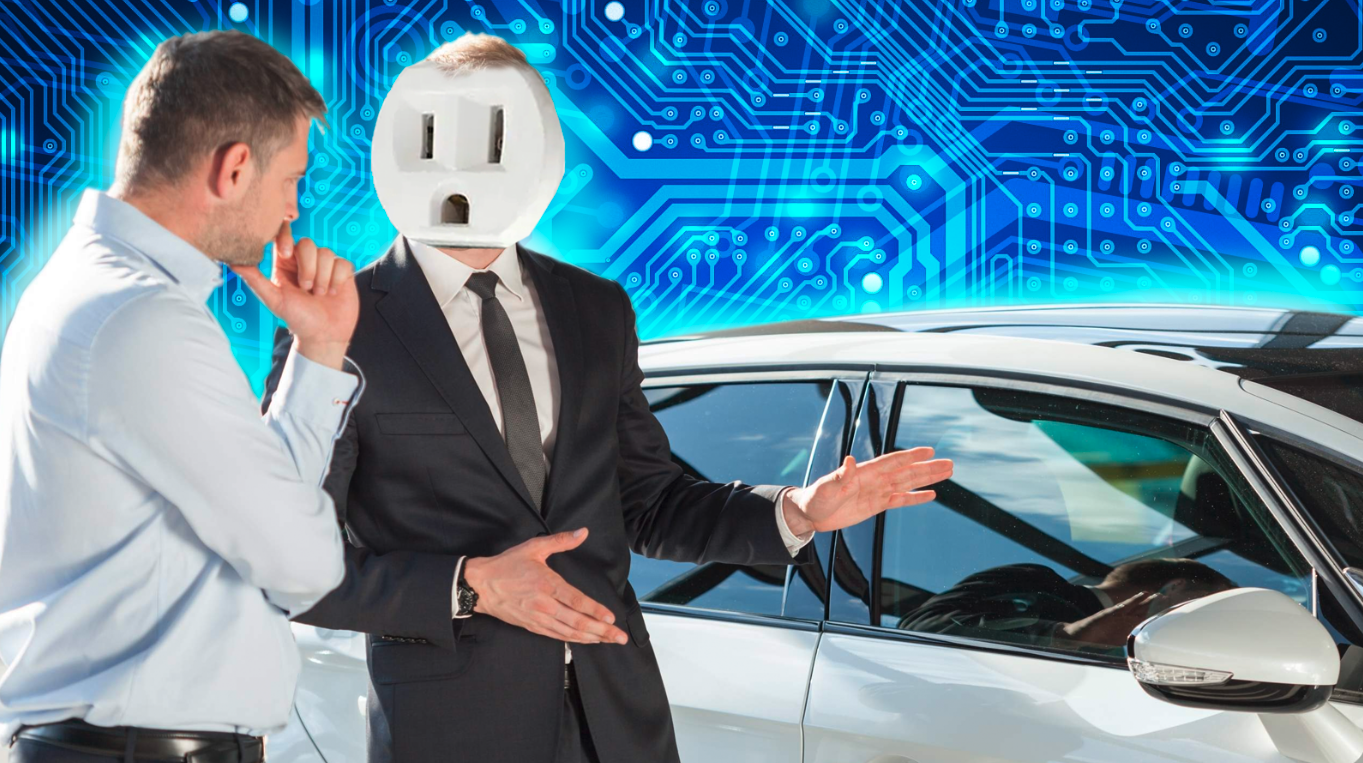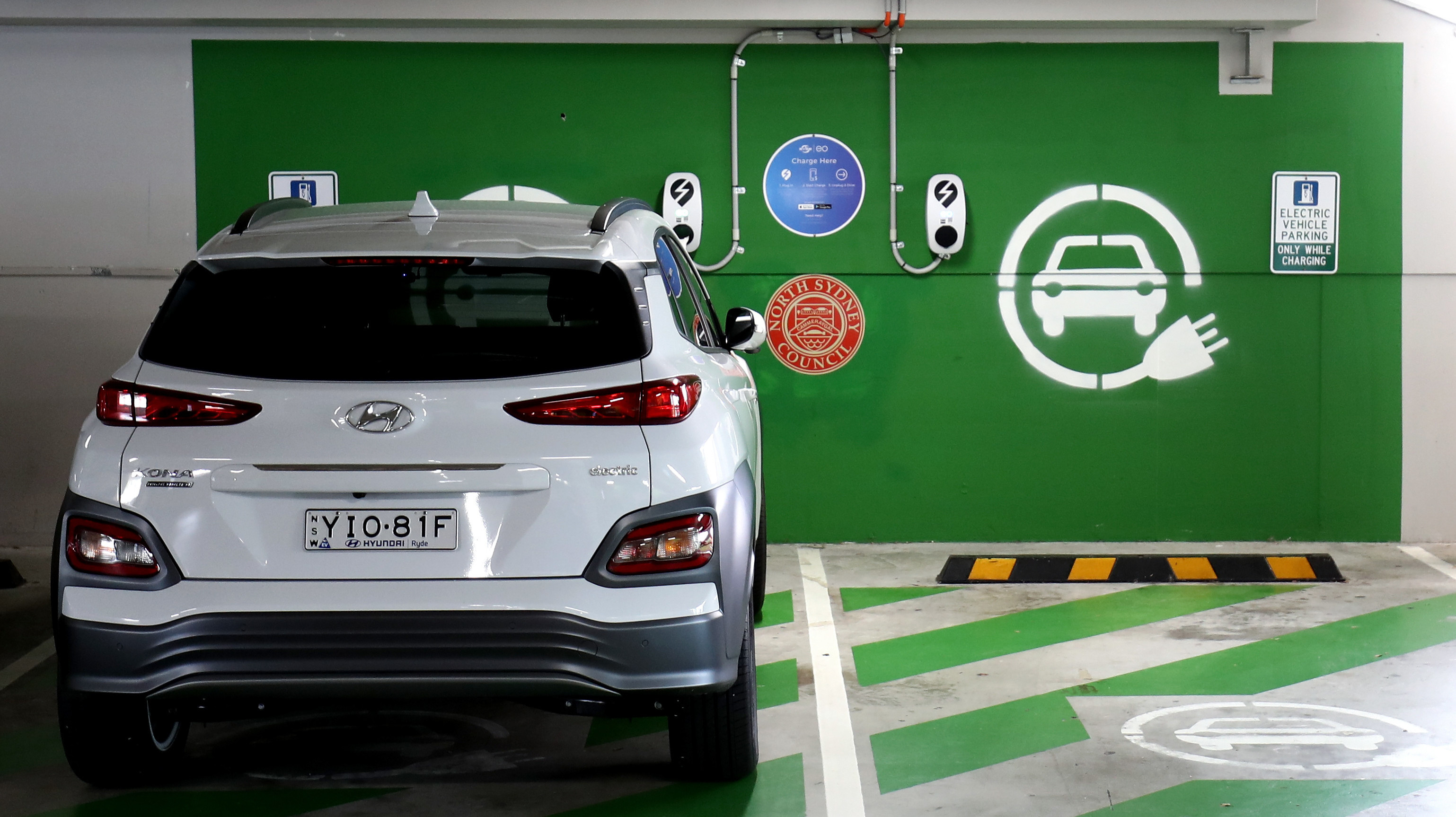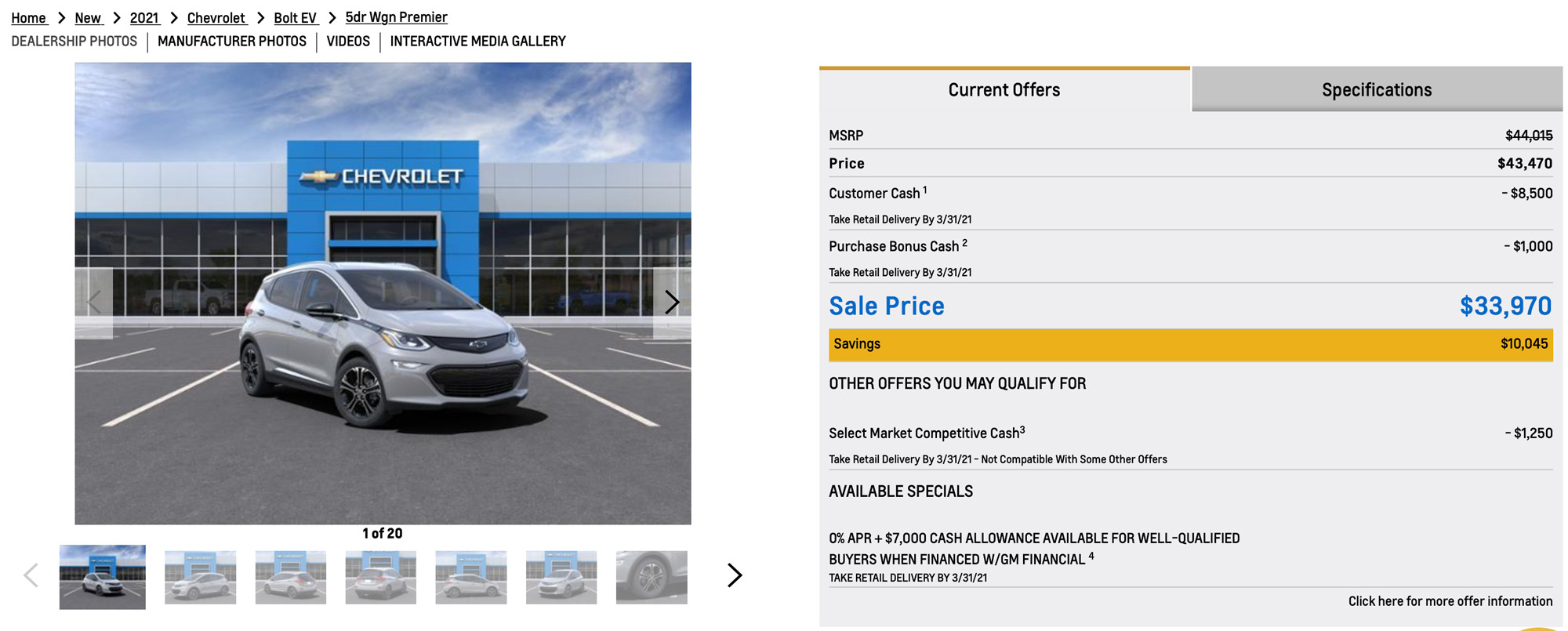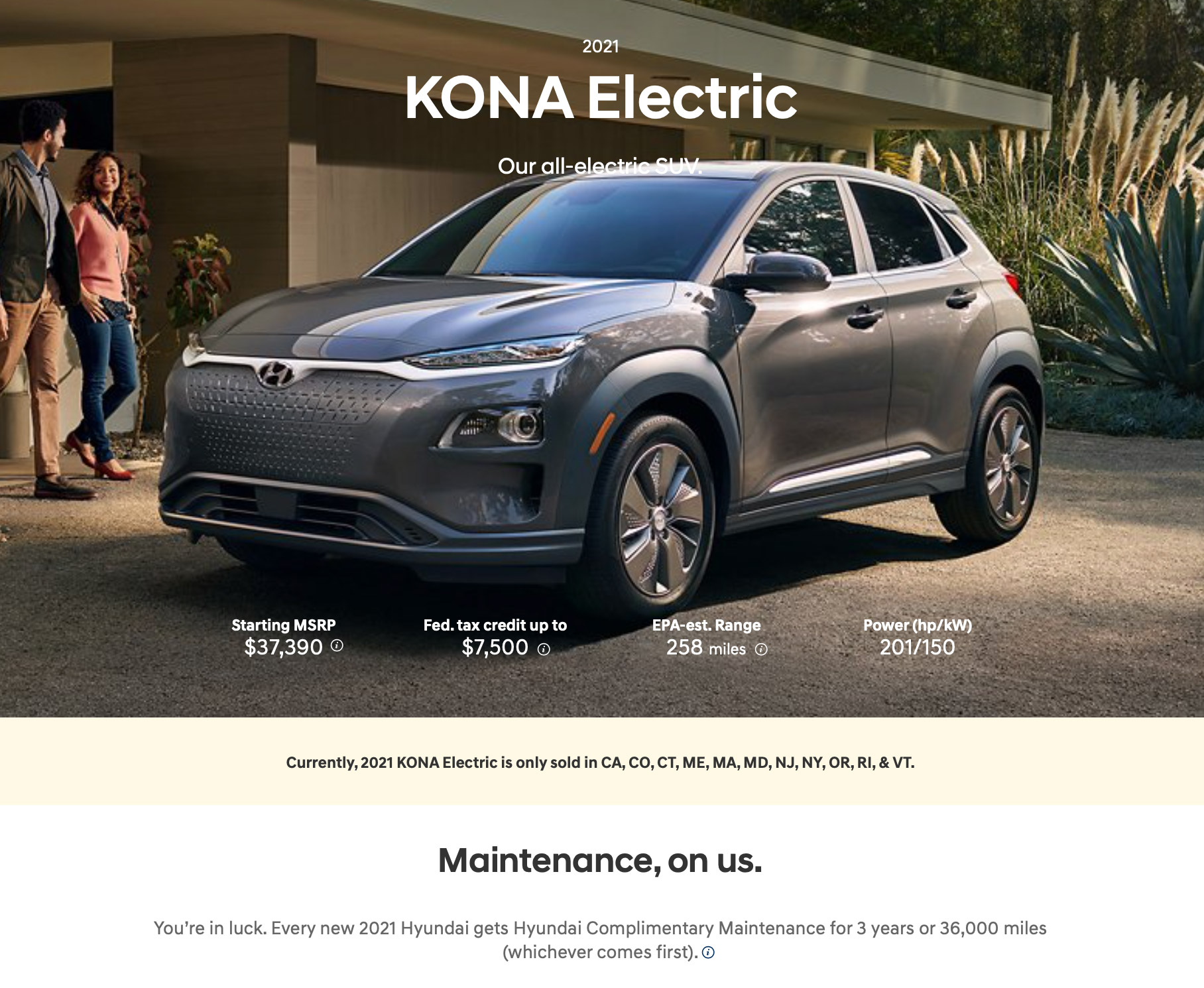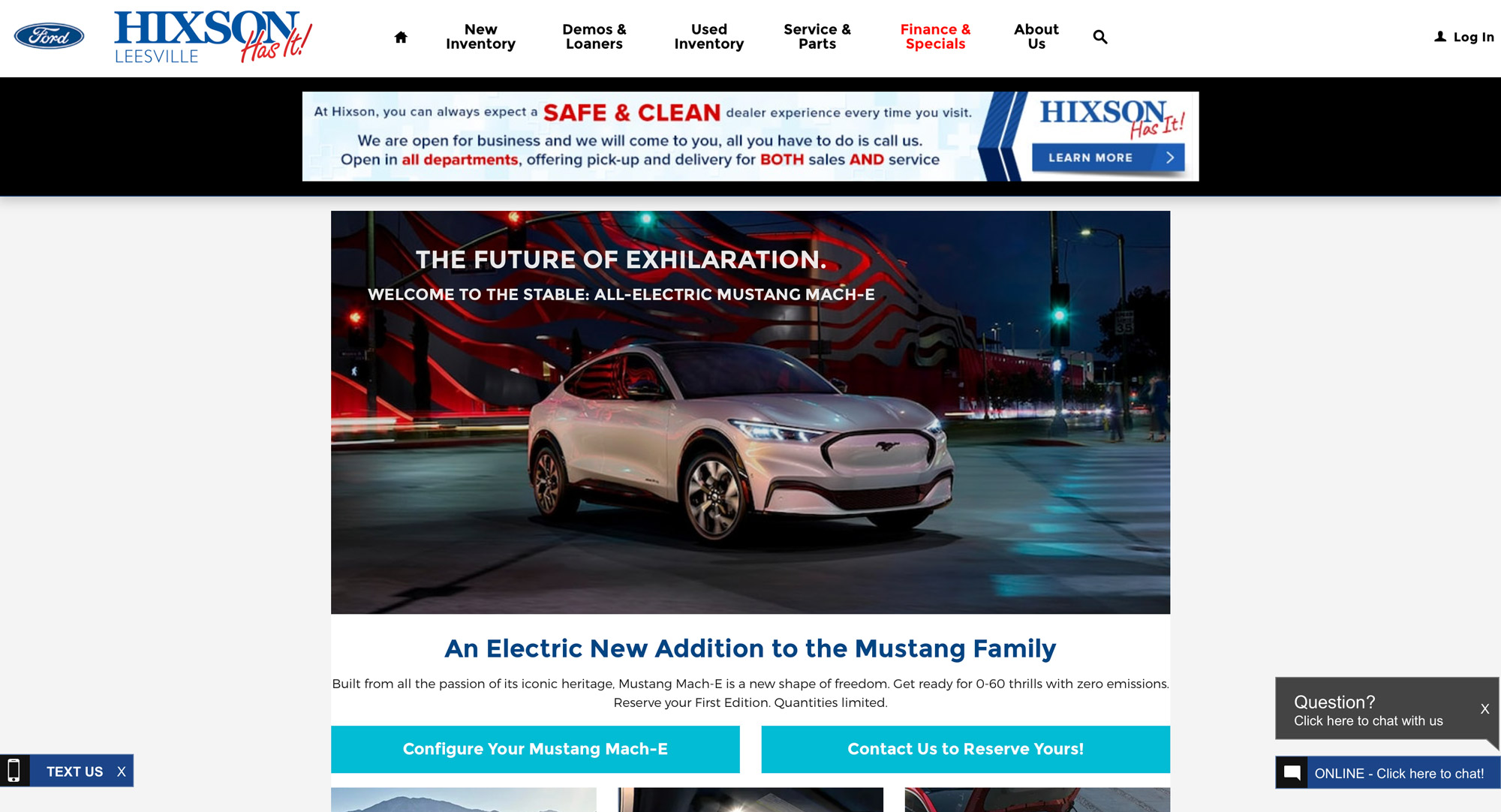2021 Staff Pick: We Called 8 Dealerships Asking About EVs. Here's What They Told Us
Join us for one of many stories selected for a 2021 retrospective.
We've shared some of 2021's most read posts in our Best of 2021. Now, we're sharing a few that our staffers think are worth a second look. These are our 2021 Staff Picks.
The increasing number of electric models filling manufacturers' showrooms has required dealer staffs to become experts on new tech — and fast. Some automakers have been in this game a while, of course, like Tesla and Nissan. Others only recently began offering their own fully electric models. You might wonder how they're adapting to the change.
It's not an easy task getting tens of thousands of brand representatives up to speed on EVs. Imagine that you'd been doing the same job, explaining things more or less the same way for your entire career. Then, many of the fundamental traits of the vehicles you've spent years selling all changed in the space of a few years. How would you prepare? More important, how do you ensure an entire staff adapts together, and provides consistent, accurate information?
We wanted to know how dealers are faring with this challenge and what their language around electric cars is like, so we decided to do a little experiment. I called eight dealerships in diverse locations across the country, posing as an interested but essentially clueless potential buyer interested in EVs. The questions I asked in each phone call were more or less the same, with but slight variations depending on model. These were broad inquiries like "what are the incentives like," "what do I do if I run out of juice" and "do I have to bring it in for service like a normal car?"
What I found was actually quite encouraging. I was concerned some dealers might be unsure as to how to explain or sell electric cars, instead falling back on pushing conventional vehicles they were more familiar with. My worst fear was that some would offer falsehoods to questions they couldn't answer.
Thankfully, neither of those things happened. The salespeople I spoke to, no matter brand or location, were generally positive and factual on EVs. Many described them as "neat" or used an appropriate synonym. And, as you'd expect, they encouraged me to pay them a visit to see for myself.
However, slightly more granular questions — relating to concerns like range anxiety, maintenance, warranties and and the benefits of electric cars versus gas-powered models — tended to go either unanswered or under-explained. In cases where salespeople didn't have an answer for me, they either promised to call back with information later or kept their responses rather short and generic. This highlighted that there's still training to be done, though again, that's not entirely surprising.
Have You Driven One?
"They're not really that different [from gas cars] at all, actually" one salesman at a suburban Pennsylvania Chevrolet dealer said when I asked him if he'd driven a Bolt and inquired how it compares to conventional cars. "It's just quieter. And you get more pep."
This seemed to be the going attitude of most dealerships I called. Electric cars were talked about more like novelties — neat, though with a few exceptions, most dealership employees didn't take the time to explain why or even speak to the practical benefits, like saving money on fuel.
"I've driven a couple of them. I think they're pretty cool, actually," said one salesman at a Hyundai dealership in a small town in Oregon when I asked him about the Kona Electric. "It's just one of those unique cars and it's gotta fit your living situation."
One of the more informed salespeople I spoke to, at a Nissan dealership in rural Tennessee, was surprisingly realistic, saying "some people really enjoy the way the Leaf drives, some people don't." He also summed up the unique driving feel of EVs reasonably well, and made a point to talk up the potential savings in choosing one:
"Essentially the only real difference you're going to notice with the Leaf from a conventional vehicle is it actually moves very quickly, comparatively speaking, because it doesn't have to build up the power. All the power is readily available as soon as you hit the gas pedal. With that, it's a lot quieter a ride as well. Right now, with current energy prices the way they are, filling up a Leaf is going to cost a heck of a lot less than a tank of gas."
On the other hand, he gravely misrepresented the car's range, saying "they're going about 400 miles on a charge." Nissan's figure for the latest Leaf Plus — the longest-range version of the car the company offers — is 226 miles.
Most salespeople I came across had firsthand experience with the EVs in their showrooms, though not all did. One saleswoman at a Nissan dealership outside Philadelphia hadn't driven a Leaf before — she simply encouraged me to test drive one and then compare it against a Sentra or Kicks.
What Are The Incentives Like?
Each dealer's online inventory presented cars with their MSRP, followed by a list of deductions. On some models, like the Bolt, the discounts are extremely steep. However, they never include federal tax credits, like the $7,500 the IRS allows you to claim for buying a fully-electric vehicle (though not all EVs are still eligible).
Most dealers, like the Pennsylvania Chevrolet store, were pretty clear in breaking down how the incentives stack up and where they come from. "That's my selling price — that's General Motors and my price" one salesman said about a Bolt with more than $10,000 in savings. "Anything else, you would have to get from the government."
A Chevrolet dealer in a rural town in Washington was a little less up to date on things, though.
"There's quite a bit of discounts, a little more than 10 grand," a salesman said. "I believe there might be another tax — what is it? We just had a customer looking at one of these and there's another tax break you can get for having this vehicle and I've been seeing a lot of news coming up of new incentives that are going to be coming on these Bolts too."
This salesman couldn't put a number to the tax credit available for Bolt buyers, later admitting that his dealership had started selling the Bolt only recently and hadn't undergone full training yet as a staff.
Do I Have To Worry About Maintenance?
Many dealerships advocated service intervals for their electric cars, even in the absence of conventional concerns like oil changes.
"You'd still get interval checkups, just to make sure everything's OK, the battery is cooling the way it should," a salesman at that Oregon Hyundai dealer told me. "Obviously, rotate the tires, regular maintenance and stuff like that, just to make sure all the pieces are still hanging in there together."
I can't say the same for the in-training Washington Chevrolet dealer I spoke about earlier, where the salesman told me he'd call me back with maintenance information. Similarly, a New York Ford dealer that happened to have one Mustang Mach-E in stock for demo purposes couldn't give me any details on the maintenance schedule for that car — simply that an expert would have more information for me when I came in to check out the crossover for myself.
Ultimately, I was surprised that most dealers didn't take this opportunity to inform me about their warranties or any complimentary maintenance included with the purchase, which can be quite generous in some cases.
One Chevrolet dealer told me the Bolt's battery was covered for 100,000 miles, though none made mention of Chevrolet's proposed complimentary home charging installation, which will be available for 2022 model-year cars set to arrive at dealerships this summer. And no Hyundai dealer brought up the manufacturer's own 10-year, 100,000-mile warranty on the Kona Electric's battery system, let alone its 3-year, 36,000-mile free maintenance that covers all new cars.
Where Do I Find A Charger?
This question comes courtesy of my mom, it being her number one worry about EV ownership alongside "What do I do when I run out of juice." Of course, these are broad questions and ultimately not challenges exclusive to electric car ownership — you still might use your phone to locate a gas station in an unfamiliar area, and if you run out of fuel, well, you get towed (or find a jerrycan). In a growing number of EVs, range is actually comparable to what you get from most gas-powered cars; nevertheless, range anxiety remains a concern typically held by those who haven't lived with electric cars.
Therefore, I don't blame the salespeople I talked to for offering little more than anecdotal information about how they're noticing more chargers popping up in retail parking lots and major cities, or recommending I use the car's built-in navigation system or manufacturer-supplied mobile app to find the closest one in a pinch. Some recapped the home charging options versus publicly available ones, and even conceded that without a garage, electric car ownership might not make much sense depending on my housing.
What If I Bought A Regular Old Gas Car?
As fully electric cars are still something of a niche — they comprised just 1.9 percent of new vehicle sales in the U.S. in 2020 — they tend to attract only buyers actively searching for them. If a potential customer walks into your dealership and has their heart set on an EV, it'd be foolish to steer them away from what they've told you they want.
But as electric cars become more commonplace on our roads and take up more of dealers' inventories, this could change. A growing number of shoppers might be on the fence. Therefore, I wanted to see how salespeople would react if I appeared largely undecided if I'd wanted an electric car at all.
Again, this is a situation where the invitation to come in for a test drive is beneficial for both dealer and customer — they'll get you in the showroom, and you'll get to experience the difference firsthand. But, of course, this can only happen if they have an EV in inventory to sell. This made an interaction with a Ford salesman in rural Oklahoma about the Mach-E somewhat awkward, as you could imagine.
Me: Maybe it makes more sense to go with something that's like a similar size, but not an electric one? Like an Explorer or something? I'm just weighing all the options, you know.
Salesman: Yeah, I got you. I mean, the Mach-E ... [laughs] I'm probably not the right person to ask a bunch of questions about that because I haven't even — you know, I haven't, I mean we've studied a little bit about it, but you know, we ain't seen them yet and we just don't know that much about them yet. You get in one of your bigger cities or something like that, they're probably gonna — they might be a little bit more apt to those but, heck, I mean nobody's got them yet.
At this point, the salesman asked me where I was calling from, which was a fair question considering I had a New Jersey phone number and probably an identifiably East Coast accent. Also, this dealer's inventory currently consists exclusively of trucks and SUVs, and there isn't even a link to register or get in contact with a representative about the Mach-E on its website, which was not the case with most other Ford dealer sites I visited.
I realize this was an unusual ask for this particular dealership, and it makes sense that Ford would prioritize training on EVs for dealers in more urban parts of the country that can support them, where EV interest generally tends to be higher. Still, it highlights a noticeable discrepancy in the quantity of information customers can expect depending on where they live and where they shop.
So Where Does This Leave Us?
Overall, I'm reasonably pleased with how these conversations went, even if I wasn't speaking to the most knowledgeable EV experts in the world at these dealers. Let's face it: You don't usually rely on salespeople for technical information on cars you're about to buy, but rather information on options, features and pricing. Most people don't want or need to understand how an electric car works beyond knowing just enough to be able to use it properly. And I'd say that's what these salespeople offered in almost every case.
That said, there's never been a technological shift in the auto industry quite like the one we're going through now, and with that there are new challenges dealerships must rise to. In a couple of years, it won't be enough to have merely one or two dedicated EV specialists on staff, and quelling customers' concerns might be even more critical when gas-powered options begin to fade away. Are dealerships ready for that day? Perhaps not quite yet, but I think they're getting there. For now, though, maybe call ahead to take the temperature before you visit the showroom.
